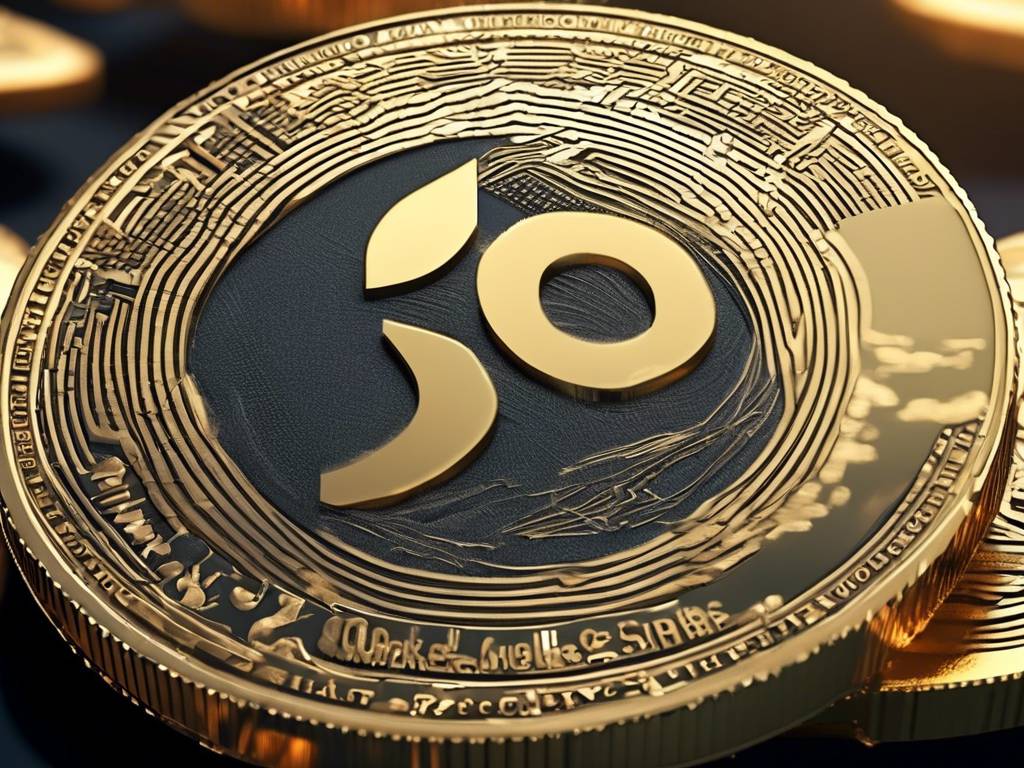You’re Entering the Stablecoin Arena
Welcome to the world of USD-pegged stablecoins, where the market is rapidly approaching a massive $165 billion milestone. With new players like Ethena’s USDe and established giants like PayPal and Ripple making waves, the competition is fierce. Ripple, in particular, has set its sights high, projecting a staggering $2.8 trillion market by 2028. While Ripple views stablecoins as a lucrative opportunity for the crypto industry, the SEC sees it as a potential violation of security laws. Let’s delve into what’s behind the SEC’s actions.
SEC Takes a Shot at Ripple’s Stablecoins
The SEC has turned its attention to Ripple’s stablecoin project even before its official launch. In a recent filing, the SEC labeled the stablecoin as an “unregistered crypto asset,” citing Ripple’s history of selling unregistered XRP. This raises concerns about possible future violations of U.S. securities laws. The regulatory scrutiny extends to Ripple’s upcoming stablecoin, which is also considered an unregistered crypto asset.
- The SEC deems Ripple’s stablecoin project as an “unofficial” crypto asset
- The regulatory body is concerned about Ripple’s history of selling unregistered XRP
- SEC sees potential future violations of U.S. securities laws
Ripple announced its dollar-backed cryptocurrency in early April, positioning it as a high-quality stablecoin that will operate on both the XRP Ledger and Ethereum blockchains, bridging the gap between traditional finance and the crypto world. According to Ripple’s CTO, David Schwartz, the stablecoin’s official name will be revealed in June.
Ripple’s Response to the Controversy
In response to the SEC’s allegations, Ripple maintains that it has obtained licenses from various jurisdictions, some of which do not classify XRP sales as securities transactions. However, the SEC dismisses this argument, likening it to a New York restaurant claiming it doesn’t need a liquor license because it holds a fishing license in California.
- Ripple defends itself against SEC’s claims regarding securities violations
- The company highlights licenses obtained from jurisdictions that do not classify XRP sales as securities
- SEC refutes Ripple’s argument by drawing a comparison with different licensing requirements
Insights into the Legal Battle
The legal showdown between Ripple and the SEC is nearing a resolution, with the regulatory body seeking a permanent injunction due to Ripple’s heavy reliance on selling XRP to On-Demand Liquidity customers.
- SEC seeks a permanent injunction against Ripple
- U.S. District Court Judge finds Ripple guilty of violating security laws
- SEC advocates for significant penalties to deter future violations
In a previous ruling, U.S. District Court Judge Analisa Torres ruled against Ripple for directly selling XRP to institutional investors, violating security laws. The SEC accuses Ripple of revisiting arguments from previous judgments and argues for penalties that align with the gains obtained through illicit means, as per legal norms.
Ripple’s lead counsel, Stuart Alderoty, remains optimistic about reaching a resolution by the end of the year, provided both parties adhere to deadlines. While critical of the SEC’s approach, Alderoty acknowledges progress in resolving the lawsuit.





 By
By
 By
By
 By
By

 By
By
 By
By